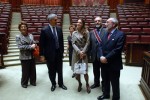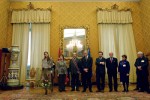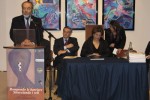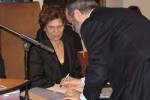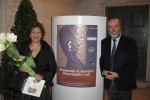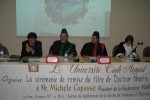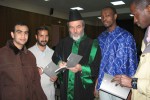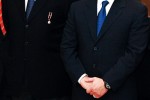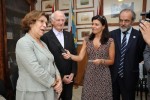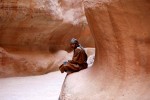2021 (EN)
|
26 April 2021
Tutte le Attività (EN) -
Anno 2021
 The Foundation participated in the international conference. President Capasso recalled the ancient friendship and customs with the Hashemite Kingdom, where the Foundation has a seat.
The Foundation participated in the international conference. President Capasso recalled the ancient friendship and customs with the Hashemite Kingdom, where the Foundation has a seat.
Compared to its turbulent neighbours like Iraq, Syria and the Israeli-occupied West Bank, Jordan is generally viewed as a pocket of calm in a volatile environment and a reliable partner in the fight against extremist groups.
Over the past decades, the Hashemite Kingdom has indeed been spared from much of the political upheaval that affected other capitals in the Middle East. Last month, this solid image was interrupted by an alleged attempted coup against King Abdallah II, in power since 1999.
The Biden administration, the EU and Amman’s key international partners quickly supported the king in the spirit of regional stability, which Jordan still figures as an essential component. Nevertheless, the public unveiling of the Jordanian royal rift also shed light on the underlying structural weaknesses and vulnerabilities, not only within the ruling family. Today, substantial socio-economic woes harm this natural resource-scarce country, home to a consistent refugee population and beset by a fragile economy further amplified by the Covid-19 pandemic.
Although gone unnoticed in recent months, these tensions have occurred at a time of particular uncertainty that, combined with the latest tensions within the royal family, seriously risk undermining the much-needed process of socio-economic reforms. What does the recent dustup tell us about the kingdom’s internal political situation? Which consequences should we expect for the stability of the royal family and that of the country? What are the major factors that could impede a serious and concrete process of reforms? How long will the Jordanian society handle the current socio-economic situation? How did the international community react to the kingdom challenges? What role should Amman’s key partners play to maintain Jordan as a linchpin of stability and a key partner in the region?
Panel Discussion
Zaid Eyadat, Director, Center for Strategic Studies (CSS), Jordan
Tuqa Nusairat, Deputy Director, Rafik Hariri Center for the Middle East, Atlantic Council, USA
Katarzyna Sidło, Director of the Middle East and North Africa Department, Center for Social and Economic Research (CASE), Poland
Chair
Paolo Maggiolini, Associate Researcher, ISPI and Lecturer in History of Islamic Asia, Catholic University of Milan
